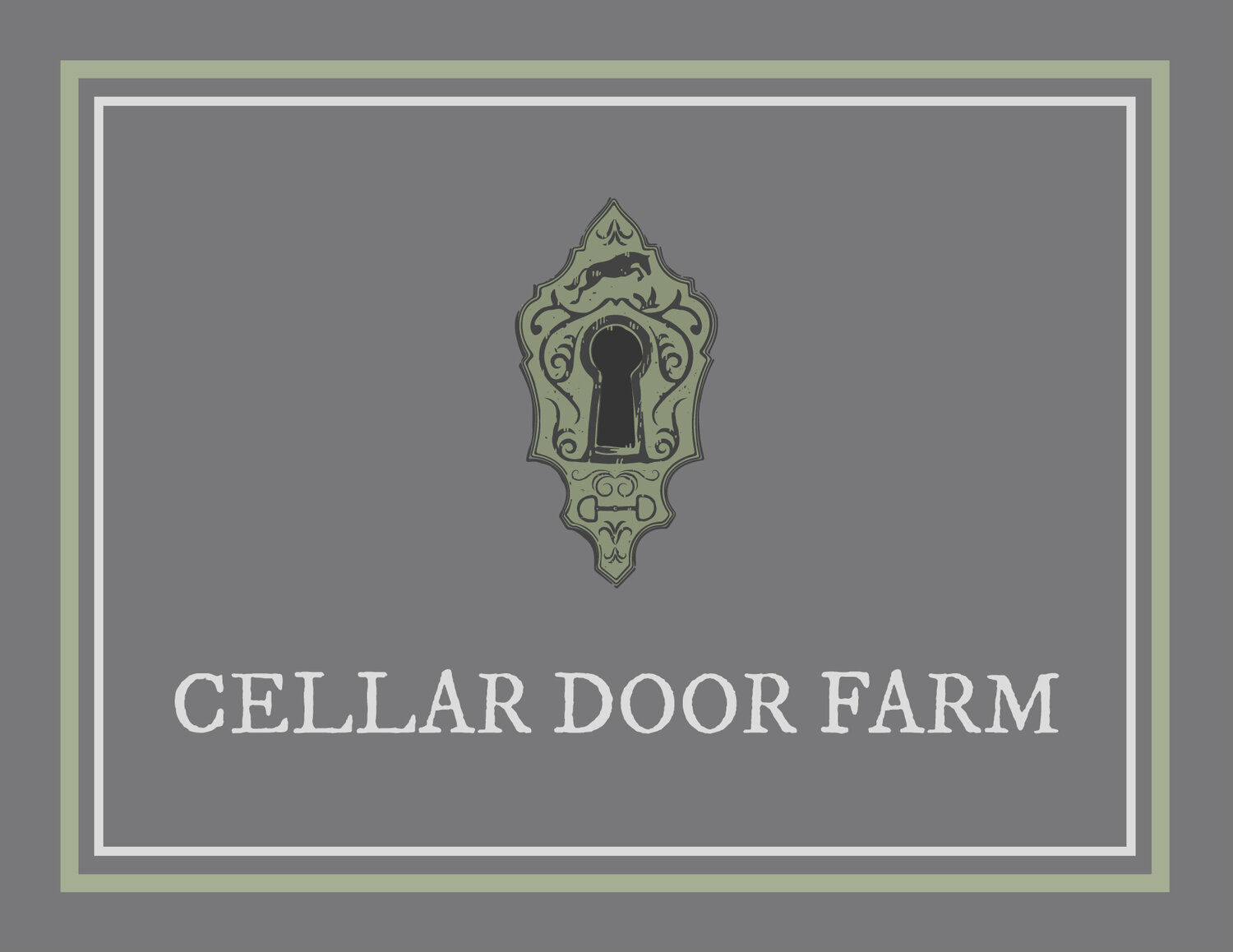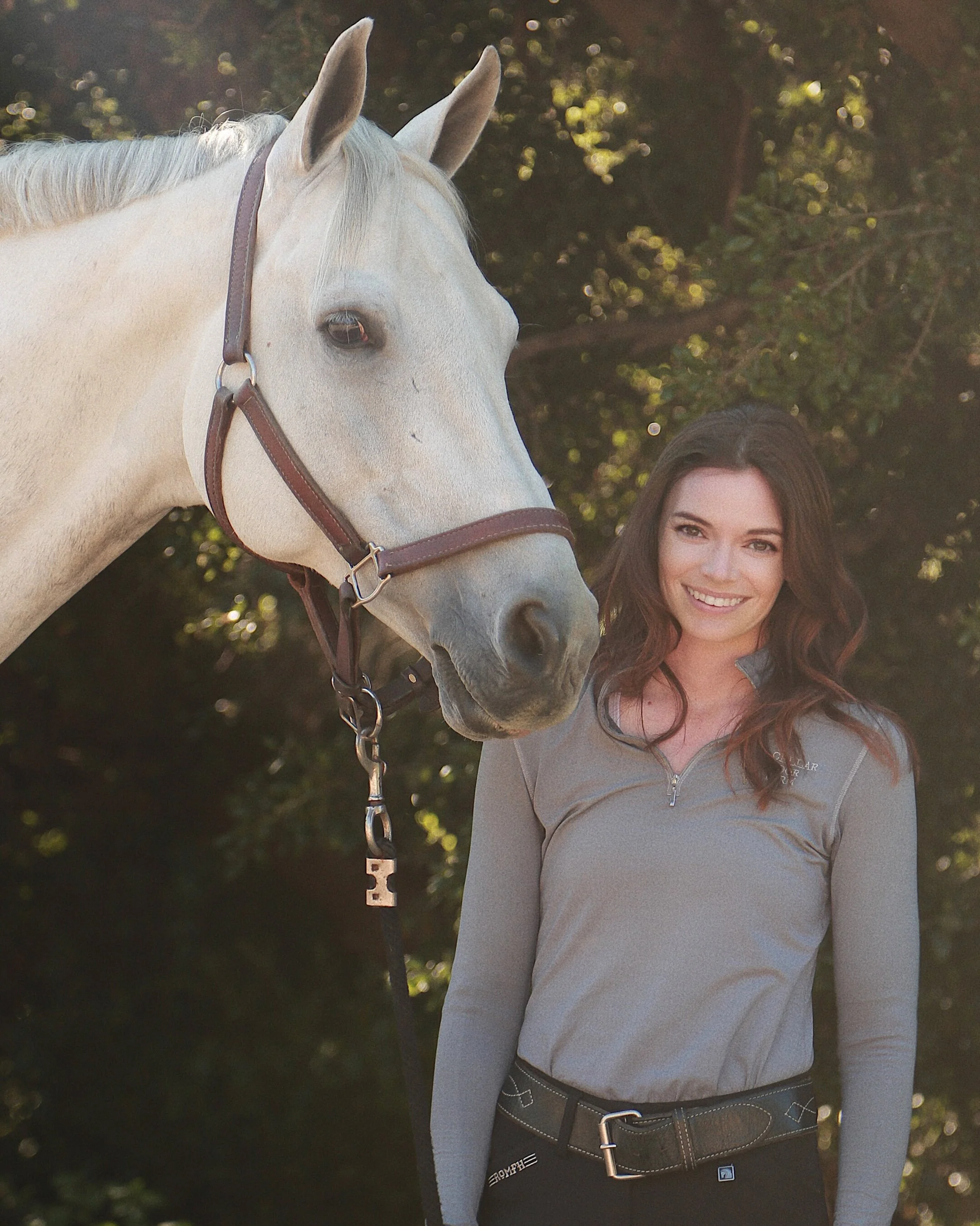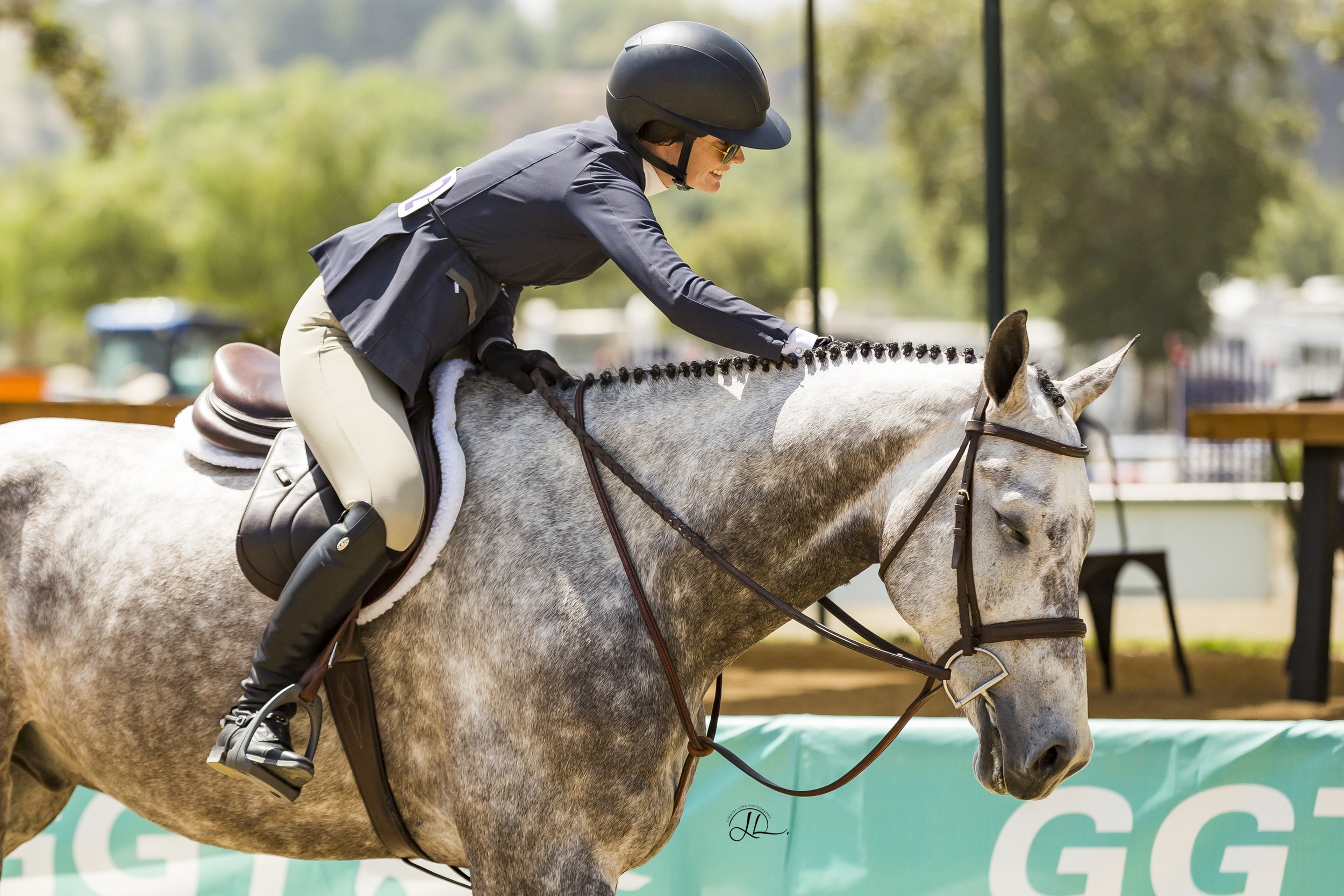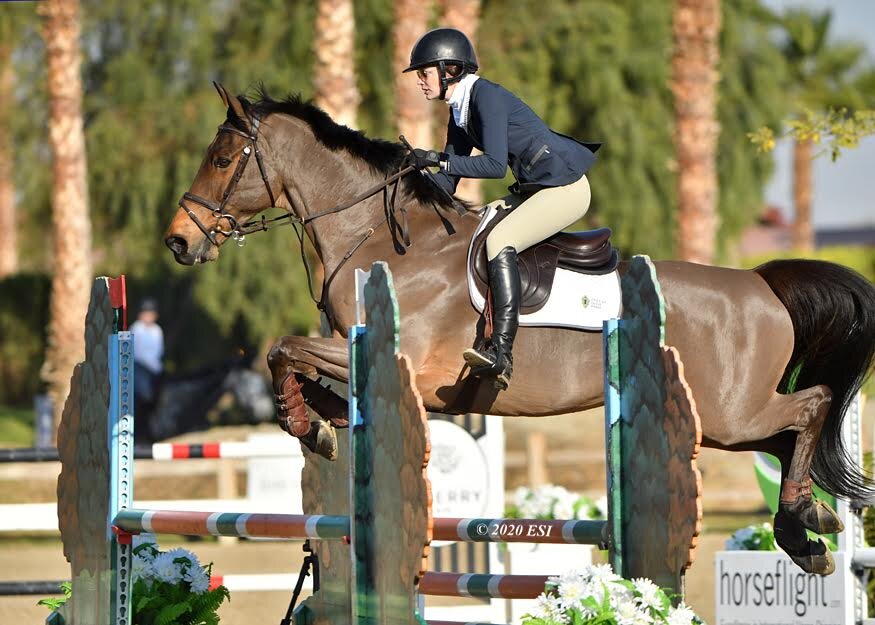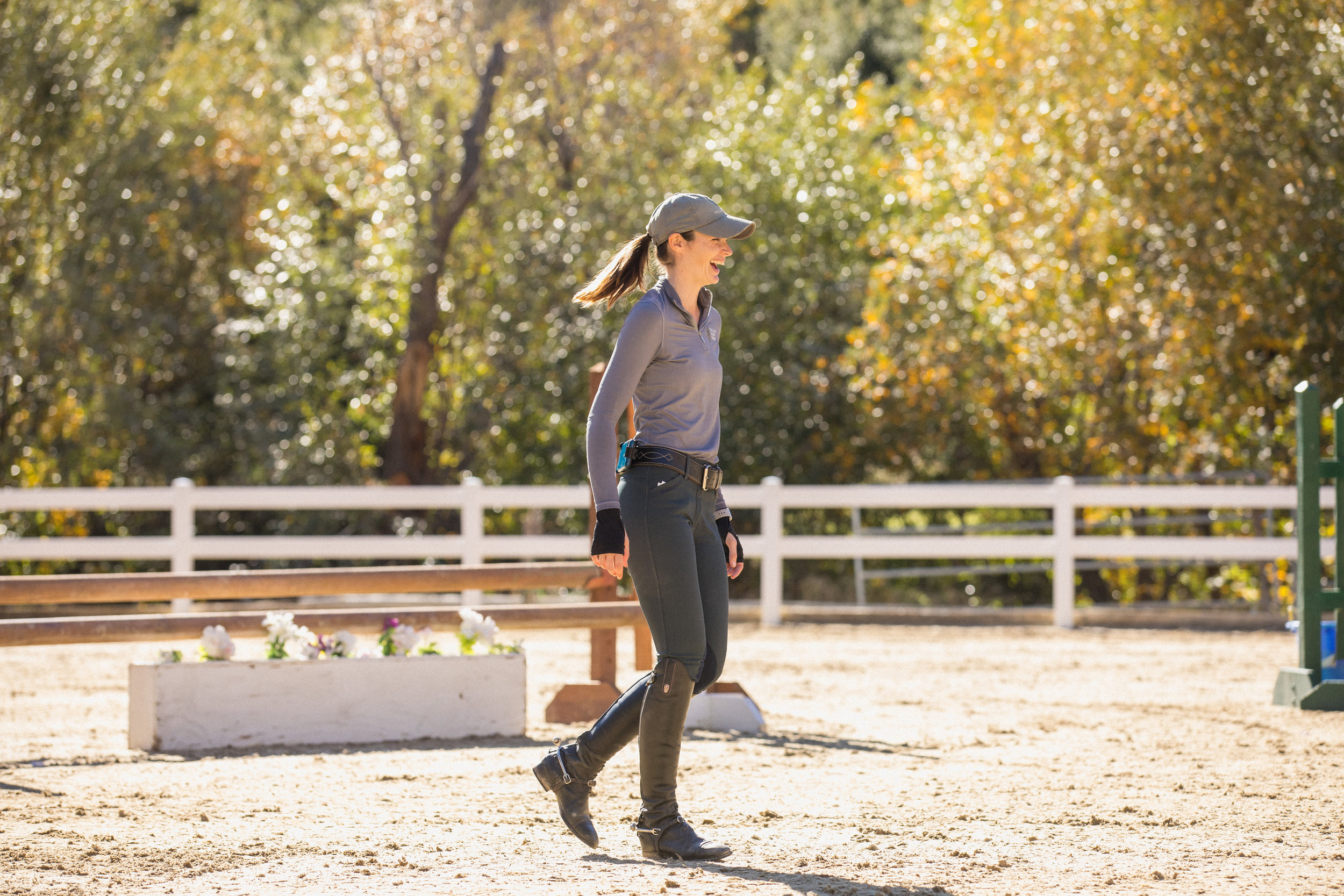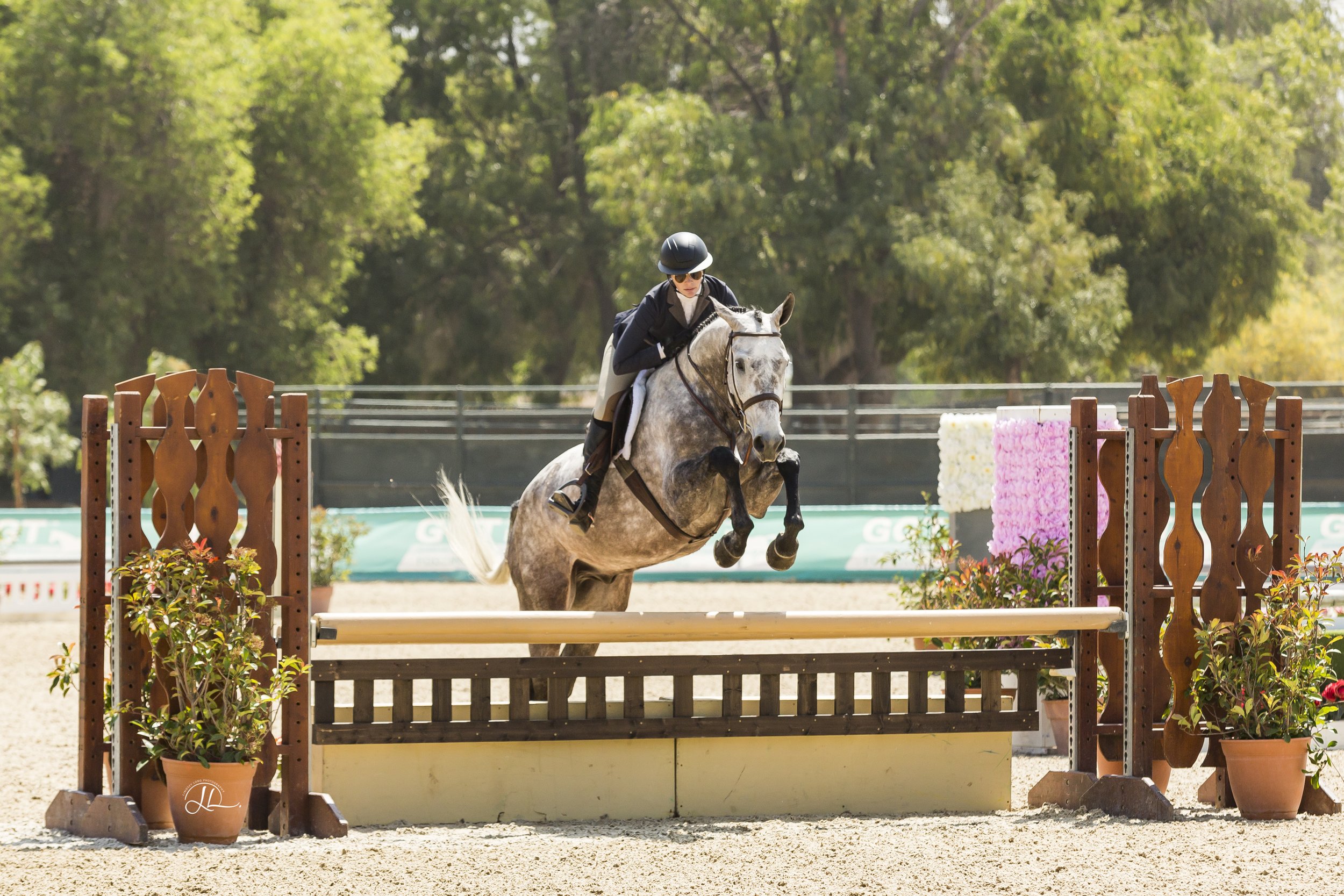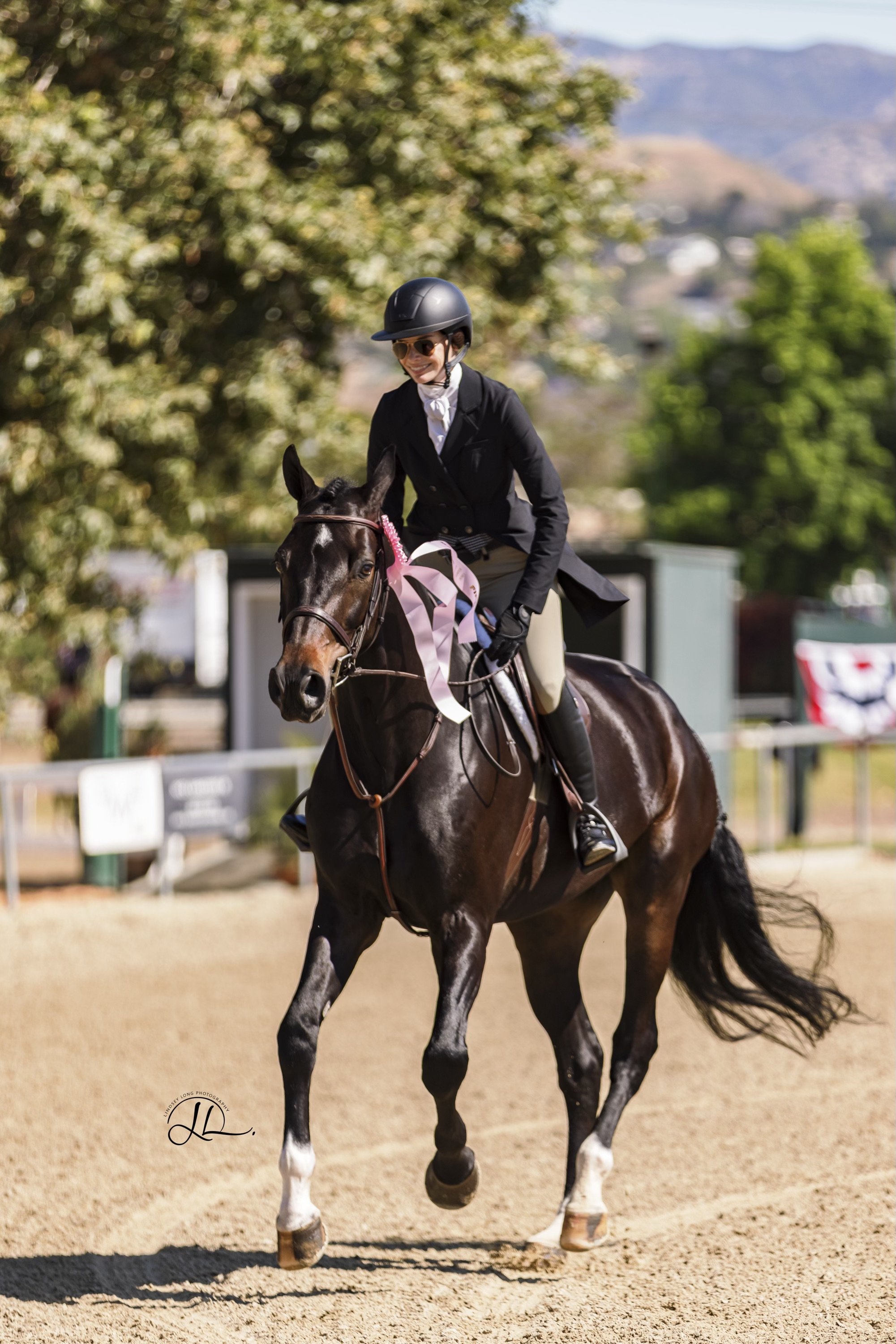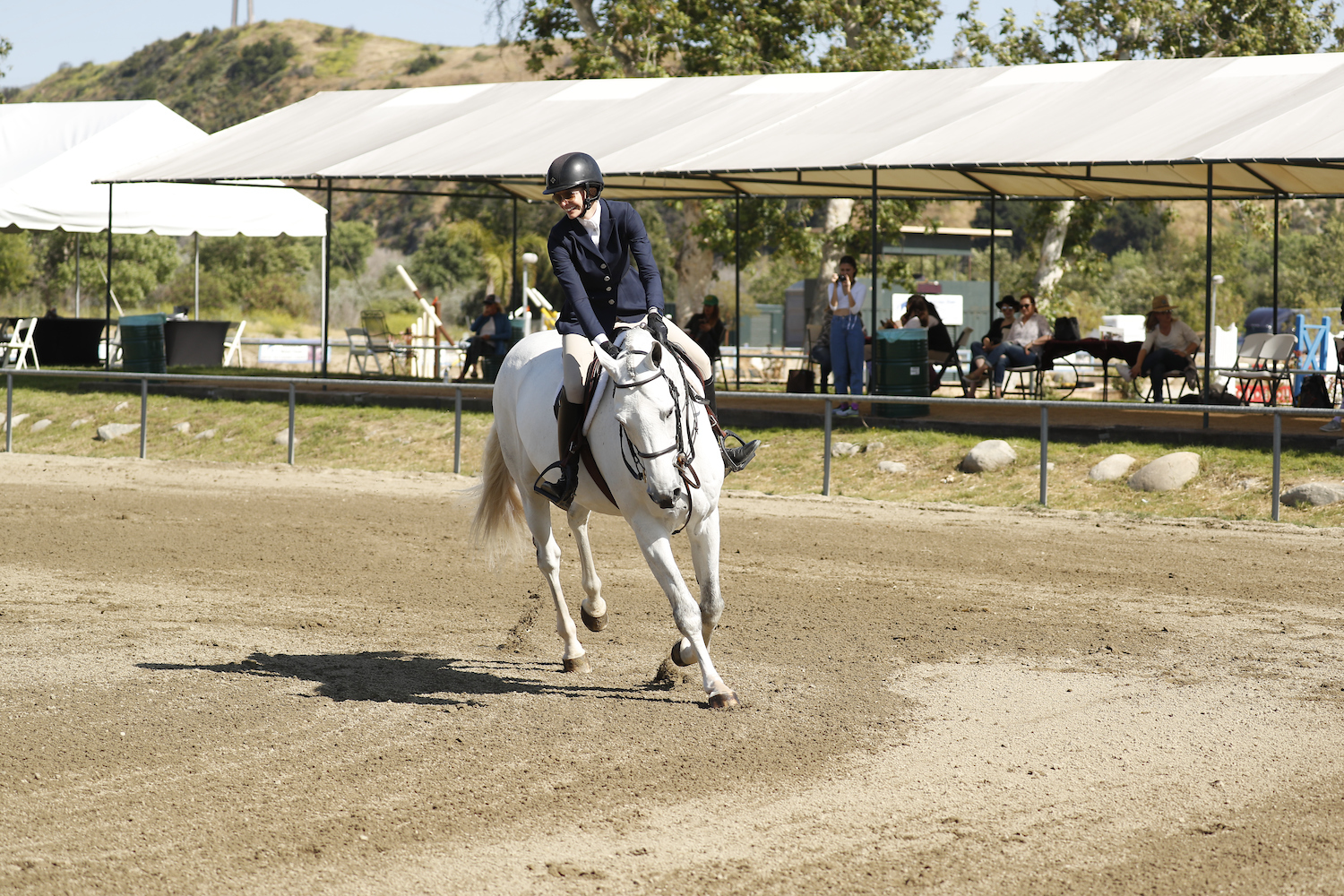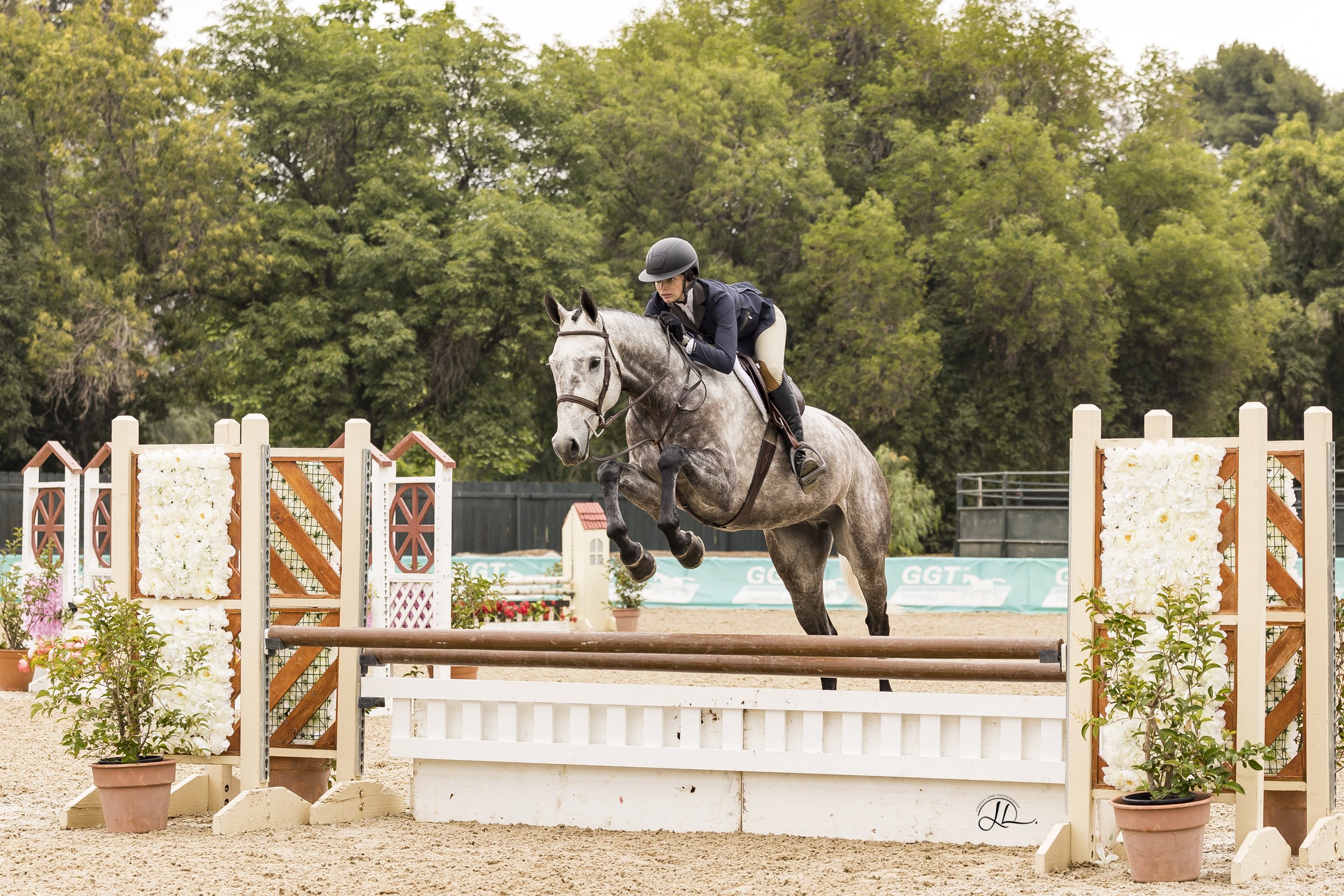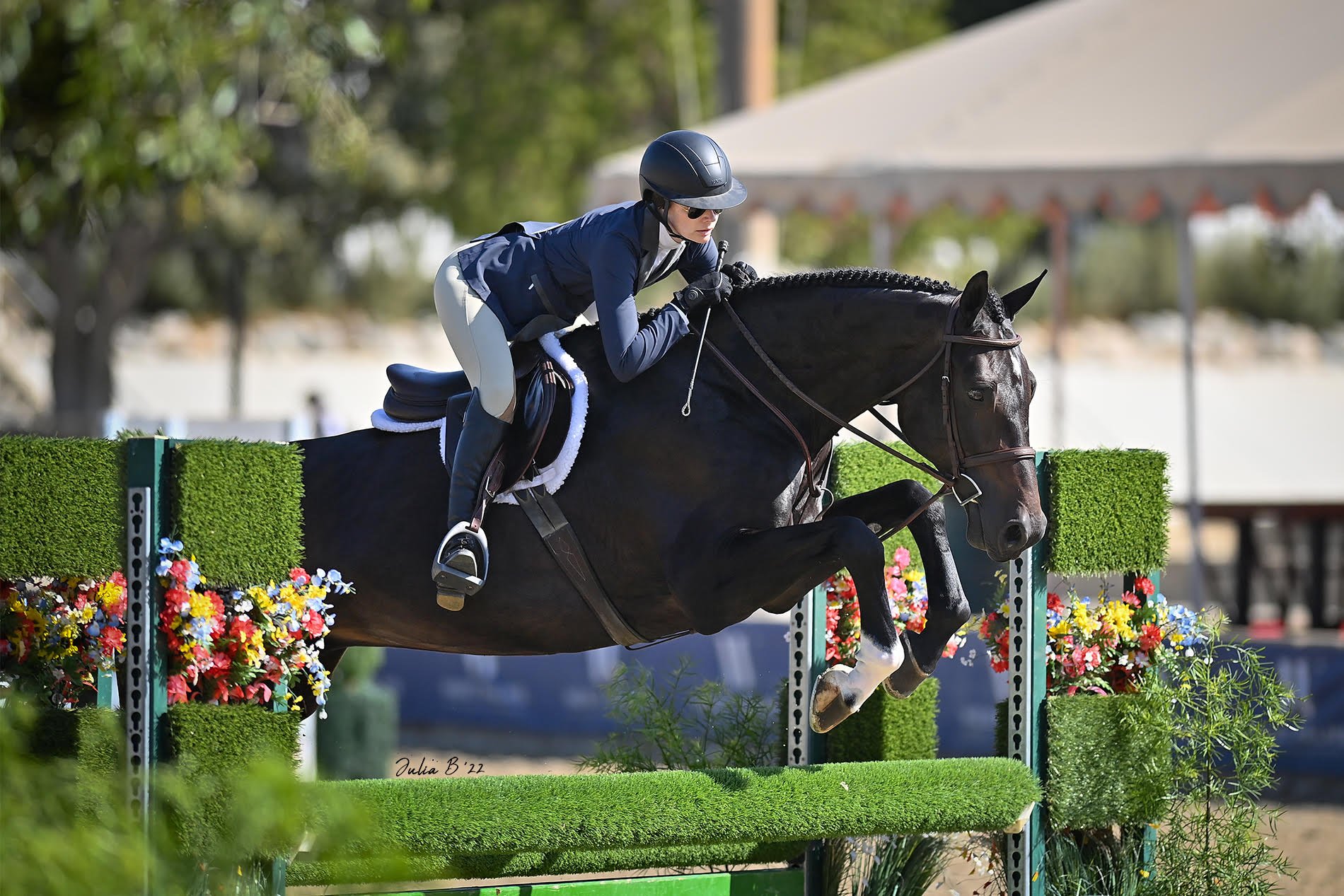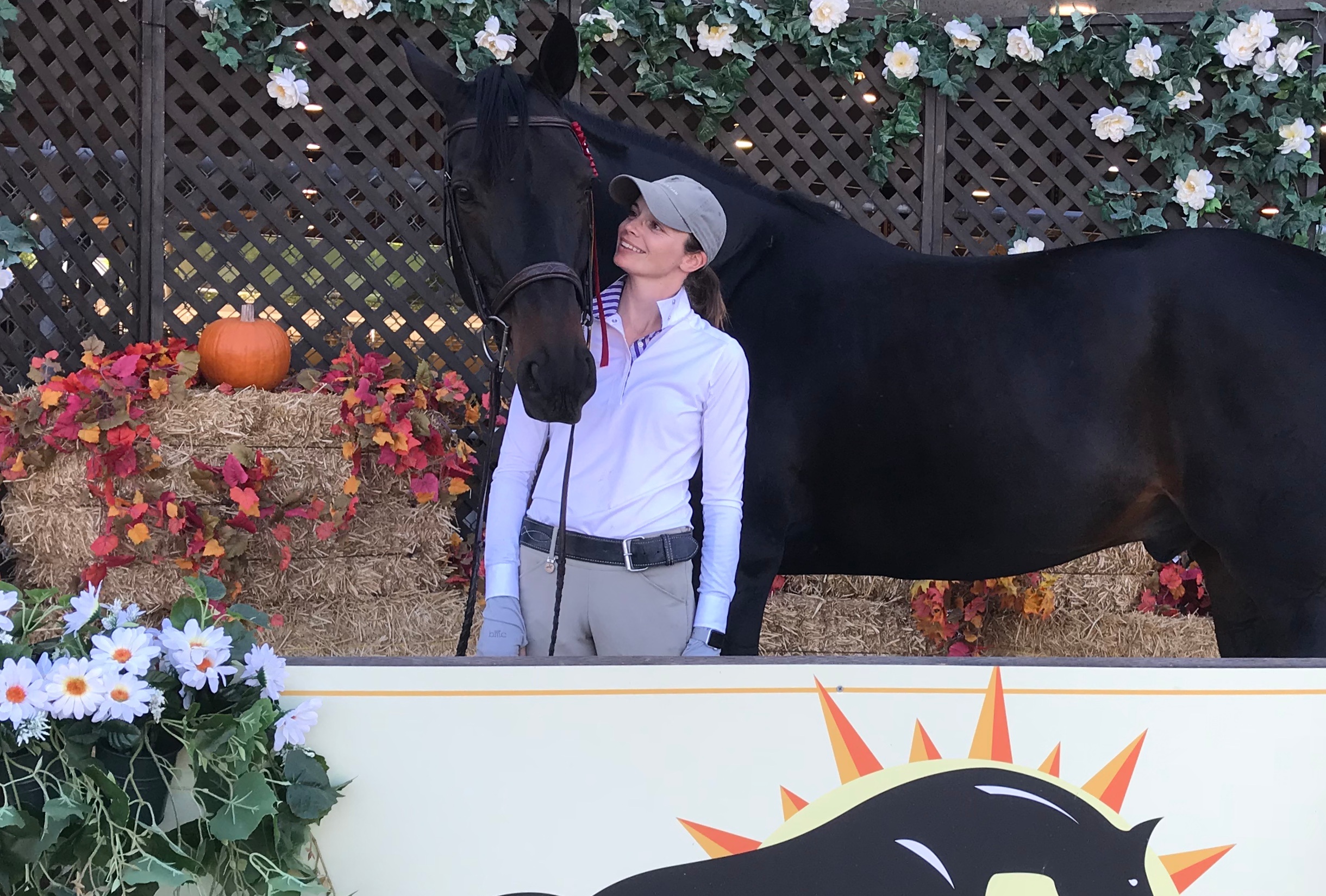KELLY JENNINGS
OWNER | TRAINER
Kelly Jennings (Kelly Balk) is a USHJA certified horse trainer who grew up riding and showing in Maryland. Starting as a working student, she found her niche taking on green and problem horses to train and show in the Hunter/Jumper ring and eventing. Through this time she learned how important it is to take each horse as an individual, listening and communicating throughout the ride to inspire trust, respect, and the desire to perform.
Kelly attended Centenary University to earn her Bachelor of Science in Equine Studies, where in addition to her riding, training, and business management studies she interned for veterinarian Dr. Michael Fugaro, DVM. This experience fueled her interest in equine biomechanics, and gave her a strong appreciation for how essential a balanced, correct ride is to a horse’s soundness and performance.
Graduating in 2006, Kelly moved to Los Angeles, where she worked as an assistant trainer for Ginny Plancke, Ilan Ferder, Erin Duffy, and Peter Lombardo. Among these positions Kelly was a part of the teams responsible for World Cup horse Tristan, USEF Horses of the Year Academy Award and Tache Rouge, and countless championships for horse and rider in the hunter, jumper, and equitation rings alike. Her teaching helped qualify many riders for the ASPCA Maclay, WIHS, CPHA Jr/Am and Ch/Ad, LAHJA Jr/Sr, and more. In addition, this work yielded invaluable experience in client relations, business management, and the opportunity to work and clinic with such trainers as Bill Cooney, Joe Fargis, Anne Kursinski, George Morris, Michael Page, and Holly Hugo-Vidal.
Bringing all these experiences together with her own style, feel, and approach, in 2016 Kelly opened Cellar Door Farm – born of a passion for maximizing communication between horse and rider, helping to build successful and fulfilling partnerships, and unlocking their fullest potential.
VoyageLA Magazine
“I teach not just how to ride a horse, but how to establish an open line of communication between the horse and rider. Cultivating this common language in the saddle helps create a symbiotic, respectful relationship leading to a true team effort in which both sides feel seen, heard, and inspired to give their best.”
